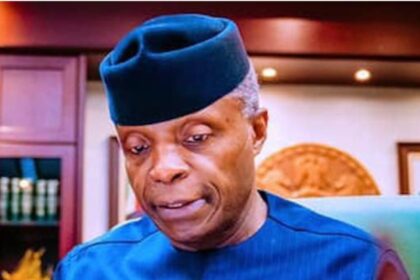Lawmakers are set to dare the Executive on the amendment to the Electoral Act, a senator said yesterday.
The problem is likely to be the plan to reorder the schedule of elections.
The Independent National Electoral Commission (INEC) has placed the presidential election before the Assembly elections, but the Senate and the House of Representatives are planning to change that.
If President Muhammadu Buhari decides to veto the Bill, “we will know what to do”, Senate spokesman Aliyu Sabi Abdullahi (Niger North) said yesterday.
Lawmakers want the Assembly elections to come first. The thinking, it seems, is that if Assembly elections come first, the winners may inspire a “bandwagon” effect, which may swing the presidential election.
In other words, the party with the majority in the National Assembly is likely to carry the day in the presidential election.
The Senate yesterday said it would push through the amendments after the harmonisation of the versions passed by it and that of the House of Representatives.
INEC’s schedule of the 2019 elections sticks to the order of elections used in 2015, which places the Presidential and National Assembly elections first. The House of Representatives passed its version of the amendment to the Electoral Act and concurred with the Senate to put the Presidential election last.
The Senate, which last year passed its own version, immediately set up a panel to meet with the House to agree on a joint position.
The new bill reordered the order of elections. It places the National Assembly elections as the first in order of elections with the presidential poll coming last.
The Presidency is believed to be unsettled with that arrangement.
Abdullahi said: “If you recall, for us in the Senate, as far back as 2016, we had already commenced action in the various amendments and as early as 2017, the Senate had already passed its own version of amendment. And the House of Representatives has just come out with its own version.
“Immediately they did that, the Senate President announced the conference committee to be chaired by Suleiman Nazif, who is the chairman of INEC so that they can do the harmonisation. So, for us, it is already done.
“The key issues have been debated and agreed upon. All that is remaining is to bring the two chambers together through the conference committee, which by next week, I want to assure you, will be concluded. Senator Nazif has travelled out of the country. He called me last Thursday and we discussed and I have it on very strong authority, next week, they are surely going to meet.
“As soon as they meet, the areas of contentions are not much. And I believe they will work together to make sure that we have an agreeable component that Nigerian people will be happy that we are deepening the electoral process.
“And barring any last-minute issues, I do not think that should take them two weeks. What we did was transparent. INEC was part of it. People with interest were part of it. Since we are passing what is popular, the presidency too should not take time in assenting to it.
“If the President decides to veto to bill, we will know what to do when we get to that bridge. For now, I do not envisage that extreme situation. This is democracy. I am hoping that we work based on consensus. At the end of the day, we should be able to agree. The interest of Nigerians is paramount and we must not take it for granted.”
Former Chairman of the National Human Rights Commission Prof Chidi Odinkalu said last night that “if it is within the competence and the scope of what the national Assembly can do, I don’t see why not.
“Nigerians are used to speculating and imputing motives into such moves, which I don’t think is healthy. In many ways, I can also rationalize it, because the presidential election is very huge and requires a lot of logistics. Why don’t we peg those logistics with the parliamentary elections first, before going into the presidential election? Why don’t we perfect the system with the governorship election first, before embarking on the presidential election? It all seems to me to be perfect and rational but sometimes the nature of our speculation is neither rational nor logical.
Second Republic Presidential Adviser Alhaji Tanko Yakassai said he did not know whether the national assembly’s move is “a good idea or not.”
He added: But from the point of view of the constitution, it is the responsibility of the Independent National Electoral Commission (INEC) to decide the order of elections. I don’t know why the National Assembly is embarking on the exercise to reverse the order of the elections, but let’s see how it works out.”
Senator Abdullahi also said the Senate had confidence in Senate President Bukola Saraki’s leadership. “Nobody can remove Saraki. We elected him and we are not ready to remove him yet. From day one, they never wanted Saraki. What we are saying is that the right to choose the Senate President lies with senators and we have chosen our leader.L



